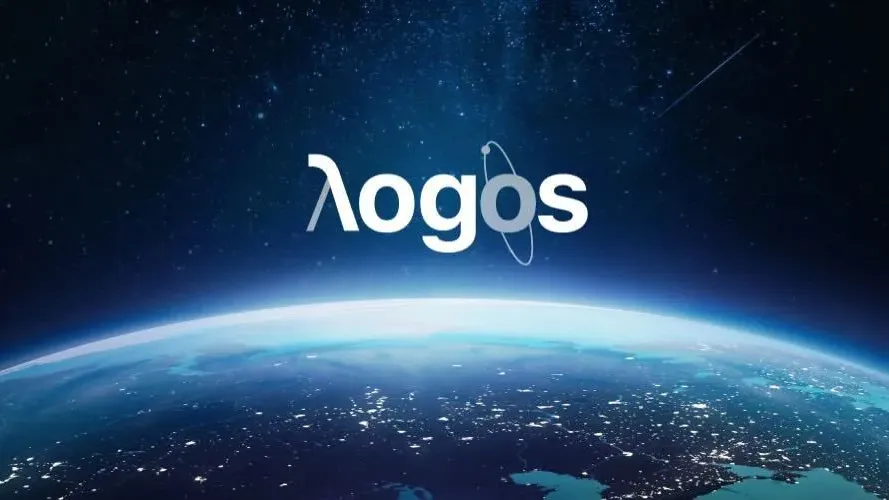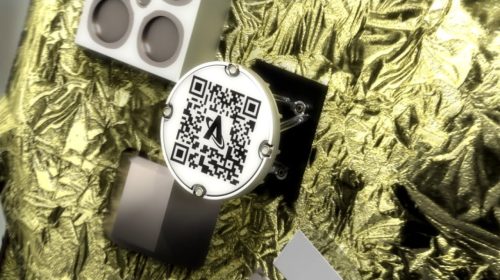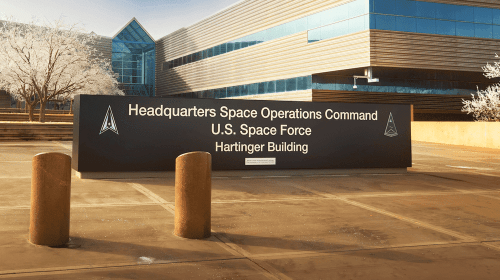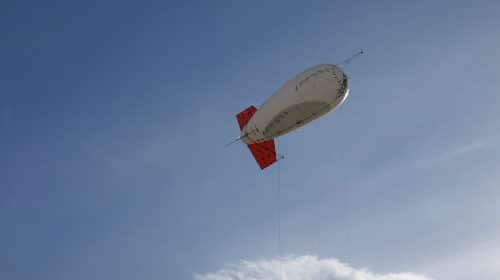Startup Aims to Launch Over Four Thousand Satellites
Jun 18, 2025
On June 12, Logos Space Services reported raising a $50 million Series A funding round to proceed with engineering plans for a broadband satellite constellation of more than 4,000 satellites. The investment was secured by the startup, which was established by former Google executive and NASA project manager Milo Medin, and was funded by US Innovative Technologies (USIT), an investment company that specializes in technologies used in both civilian and military fields. USIT remains the venture’s only investor. The company, chaired by serial entrepreneur Thomas Tull, had also invested an undisclosed amount in an earlier round.
 Logos Space Services promo. Credit: Logos Space
Logos Space Services promo. Credit: Logos Space
The company, based in Redwood City, California, emerged from stealth mode in October, after filing with the Federal Communications Commission (FCC) for permission to launch satellites in the K-band and higher-frequency V and E spectrum bands assigned to the United States. The company initially requested permission to launch 3,960 satellites, but even the latest estimates suggest that the constellation could grow to 4,178 satellites. This scale would rank Logos among the largest proposed satellite constellations in the world. The regulatory approval process marks an important milestone in the company’s operational history, as FCC authorization is required to operate commercial satellites in U.S.-assigned spectrum bands. Medin stated that the company only needs 1,067 satellites to reach government and enterprise customers globally, distributed across two orbital shells in low Earth orbit. This two-shell configuration offers redundancy and coverage optimization for various customer segments and geographic areas.
The proposed constellation will operate in low Earth orbit at an altitude range of 870 to 925 kilometers. The system design uses high frequencies and narrow-beam technology at high angles to reduce signal interference and improve resistance to jamming. According to Medin, the company is still actively engaged in the FCC licensing process and has made progress in developing its engineering designs, though he declined to comment on specific technical details. The financing will support team growth and recruitment drives across various engineering domains. Logos currently has 10 full-time employees and plans to hire at least 40 more by the end of the year. Workforce expansion will focus on satellite design, ground systems development, and regulatory compliance. Recent hires include Jorge Delgado as Director of Engineering, who previously worked at Airbus, OneWeb, and Apollo Fusion. Medin stated that the company has strengthened its technical team with experts from major aerospace and satellite organizations such as NASA and Airbus. The Series A financing will help Logos move into critical phases involving design decisions, partner selection, and prototype development.
The company has established a schedule targeting the launch of its initial operational satellite toward the end of 2027. Other companies in USIT’s investment portfolio operate at the intersection of commercial and national security applications, including AI-driven defense systems developer Anduril, autonomous flight software company Shield AI, and synthetic aperture radar satellite operator Capella Space. But with the satellite broadband market becoming increasingly competitive—and with the enormous technical challenges of deploying and maintaining such large constellations—can Logos Space Services truly deliver on its ambitious timeline and succeed in an already congested orbital environment?





